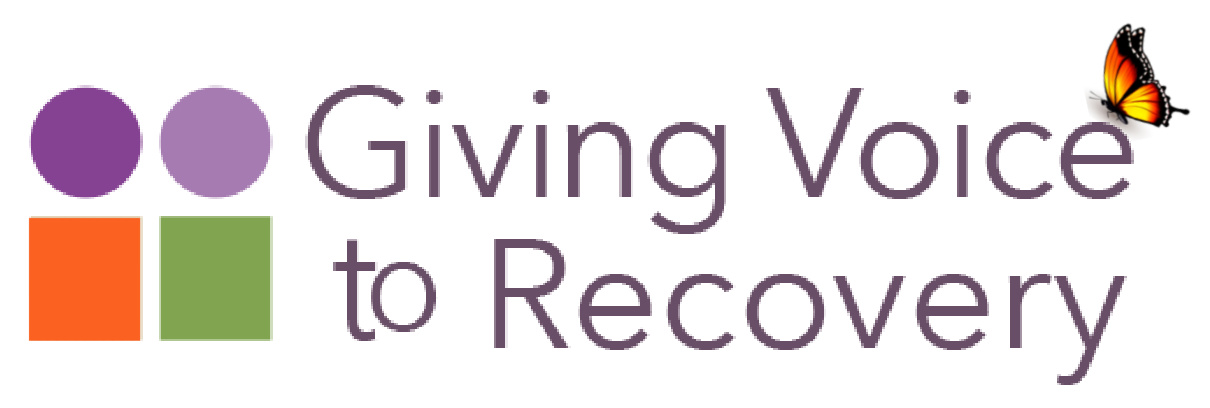Don’t Kill The Messenger

Feelings are not good or bad they are like the clouds in the sky. They come and they go. Some days you get puffy white cotton ball clouds with clear blue sky and other days you get a dark and scary storm. Either way, it will pass.
This was the analogy a very good therapist shared with me when I went to him for my apparent inability to manage my life and my emotions. I was young, had no idea that I was suffering from alcoholism, I just knew I was out of control and emotionally overwhelmed most of the time.
When I got sober a few years later I heard it said that “Feelings are not facts.” I took that to mean that feelings didn’t matter much, I was wrong.
The mere fact of my physical sobriety brought about significant improvement to my emotional health so for while I coasted. However, as I moved along in life as a sober person, I found emotions became harder to control and my resistance to feeling my feelings seemed like a losing battle. I was either in blind denial about how I really felt or I was stuck looping on resentments, both of these reactions were disabling and destructive.
Then I learned this amazing little truth and it changed my life forever.
Feelings are not facts however they are messengers and they have something important to tell me, especially the feelings I tend to want to avoid.
Wow! What a revelation. It still amazes me that I survived as long as I did without this knowledge. When I started to apply this practical information the ability to manage my emotions became much easier and so did my life.
Shakespeare wisely wrote “Don’t Kill the Messenger”. If you kill the messenger, it’s likely you won’t get the message. This might have been why I kept doing the same things over and over again expecting a different result. How can anyone make a good choice, how can one prepare or be successful in life if they don’t have the all the information? They cannot.
I had been killing the messenger (feelings) first with alcohol and drugs and then in sobriety I would wrestle, deny or try to out run my feelings with all kinds of exhausting and self-destructive patterns of behavior.
It all started to change when I learned to feel the feelings, identify the feelings and ask myself what is this feeling trying to tell me? The good news is we are all way more alike than different and someone else has already cracked the code. I was introduced to this specific information from the work of Anthony Robbins.
Here are the top ten feelings many people want to avoid and messages these feelings are trying to give us:
1.Discomfort
Uncomfortable, nagging sensation, bothered, you just don’t feel right.
Meaning/Message/Signal
I call this the “check engine light” feeling because this feeling is usually mild however It’s telling us to stop and look deeper. It could be boredom, impatience or a mild embarrassment or it could be something I am in denial about.
Solution
- Stop and pinpoint the specific reason for the discomfort.
- Identify what you want.
- Take a step back, try a different approach to the situation and change the quality of the results you are producing.
2. Fear
This can range anywhere from low levels of concern to intense worry, anxiety and even terror.
Meaning/Message/Signal
The anticipation of something that’s going to happen soon and needs to be prepared for.
Solution
- Identify what you are afraid of, what you don’t feel prepared or ready for.
- Evaluate what you need to do to prepare for the situation
- Do all you can do to prepare and then practice faith that you have done all can to deal with the situation – suit up and show up.
3. Hurt
Feelings generated by the sense of loss or disrespect
Meaning
We have an expectation and that expectation may have not been met
Solution
- Consider the whole situation. The person who hurt you might not have a clue that they have done so.
- Ask yourself, is there really a loss here? Am I judging the situation too soon?
- Appropriately communicate your feelings to the person involved – state how you feel without judging their intention- just put it out there and see what happens – yeah I know it’s hard to be venerable but this is how we learn to let people know us for who we are and we get to learn who we have been choosing to surround ourselves with.
4.Anger
From being mildly irritated to resentful, furious or even enraged
Meaning
An important rule or a standard you hold has been violated by someone else or by yourself
Solution
- The person that caused you anger may have not realized that they violated your standards and you may have assumed they did!
- Check your values, make sure they are truly your values – clarity is power.
- Communicate your standards and values with the people you care about. Let them know what you want and don’t want to have in your life. Learn from the experience.
5. Frustration
When we feel we are surrounded by roadblock or continuously putting in effort with no reward in return.
Meaning
This is an exciting signal. Your brain is telling you that you could do better than you currently are.
Solution
- Realize that frustration is your friend and that the solution is within reach. Just brainstorm new ways to get your results.
- Ask for help, get input from people who have “figured it out” or follow a role model that has been in the situation before.
- Know that what you learn here will help you handle this same challenges in the future.
6. Disappointment
The devastating feeling of being “let down”. Anything that makes us feel defeated as a result of expecting more than you get.
Meaning
An expectation or a goal you were going for is probably not going to happen
Solution
- Immediately try to identify something that you can learn from the situation – Ask what you can use in the future.
- Consider that you may be judging the situation too soon.
- Set a new goal, something even more inspiring that you can start immediately working toward.
- Be positive and expect the a great result regardless of the past.
7. Guilt
Feelings of regret and remorse about a behavior, event or situation we caused.
Meaning
It is a message that you have violated one of your highest standards, values or rules and that something must be done to make sure that this will never happen again in the future.
Solution
- Do acknowledge that you have violated a standard that is important to you.
- Don’t beat yourself up. What’s done is done but immediately commit yourself to self-correction and of course make amends.
8.Inadequacy
Feelings of being incapable, lacking in confidence, feeling less than.
Meaning
This is a message telling you that you may not presently have the level of skill needed for the task. You may need more information, understanding, strategies, skills, support or confidence.
Solution
- Reconsider your perception and ask yourself
“Am I really inadequate”
Sometimes it is our perception that needs a reality check.
- However, this is a good signal for growth. Take the situation as an encouragement to improve, practice persistence and patience with yourself.
- Find a role model and learn from others who have mastered what you want to master.
9. Overwhelm
Confusion and helplessness, grief and depression all fall into this general emotion. When there is more than we think we can handle.
Meaning
This feeling signal a need to reevaluate what is most important in your life so you can prioritize.
Solution
- Make a list of all the things that are overwhelming you. Separate the list into two categories, the things you can take action on and the things you can’t do anything about.
- Focusing on the list you can take action on, list all the actions you can take in order to solve the problems and then put them in order of importance. This alone can give you a sense of power and clarity.
- Create a list of resources and support you can access and start delegating, asking for help and working toward accomplishing each action one at a time.
- Recognize that you are now in control of the things you can control – primarily yourself!
10.Loneliness
Anything that makes us feel apart or separate from others
Message
You need connection with people and it is a great reminder that you love and care about people (which is a good thing!).
Solutions
- Start reaching out to people. There is a world of caring human beings. A great way to connect is to plug into a recovery community, a community project, church, service organization or a club. The key is to find like-minded people.
These are the ten most common action signals that Tony Robbins outlines in his book Awaken the Giant Within. He goes into greater detail in his seminars, events and products. There is a bunch more to learn here so —Check it out!
Like all my suggestions, I hope you find this helpful!


